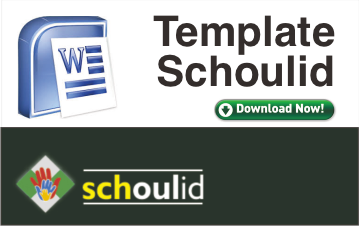EFL bachelor’s students’ experiences in writing recount texts through daily english journaling: a focus on advantages and obstacles
 (1),
Ahmad Amin Dalimunthe (2),
Ernita Daulay (3),
(1),
Ahmad Amin Dalimunthe (2),
Ernita Daulay (3),
(1) Universitas Islam Negeri Sumatera Utara
(2) Universitas Islam Negeri Sumatera Utara
(3) Universitas Islam Negeri Sumatera Utara
 Corresponding Author
Corresponding Author
Copyright (c) 2025 Anggi Handayani Harahap, Ahmad Amin Dalimunthe, Ernita Daulay
DOI : https://doi.org/10.23916/085936011
Full Text:
 Language : en
Language : en
Abstract
This study investigates the experiences of sixth-semester EFL undergraduate students at UIN Sumatera Utara in implementing daily English journaling to develop their writing skills. Specifically, it aims to (1) explore students’ engagement with journaling as a tool for writing development, (2) identify the perceived benefits of this practice, and (3) examine the challenges they face during the process. Using a qualitative approach with a phenomenological case study design, the research involved five purposively selected participants over a six-week period of daily journaling. Data were collected through semi-structured interviews, journal samples (comprising 30 entries per participant), reflective logs, and field notes. The data were analyzed using Miles, Huberman, and Saldaña’s interactive model, involving data condensation, display, and conclusion drawing. Trustworthiness was ensured through prolonged engagement, triangulation, member checking, and persistent observation. The findings indicate that sustained journaling over time fostered writing fluency—evidenced by increased word count per entry, greater lexical variation, and reduced grammatical errors. Participants also reported enhanced confidence, improved sentence structure, and greater awareness of their writing habits. Nevertheless, challenges such as limited vocabulary, inconsistent motivation, lack of feedback, and time constraints were frequently noted. These results underscore the pedagogical value of journaling as a reflective, low-stakes writing practice in EFL contexts. The study offers practical insights for educators on integrating journaling into writing instruction and highlights the need for guided feedback mechanisms to optimize learning outcomes.
Keywords
References
Aisiah, A. (2017). The effectiveness of journal writing in improving students' writing skills. Journal of English Language Teaching, 6(1), 35–47.
Al-Khasawneh, F. M. S. (2010). Writing for academic purposes: Problems faced by Arab postgraduate students of the College of Business, UUM. ESP World, 9(2), 1–23.
Barjesteh, H., Vaseghi, R., & Gholami, R. (2019). The effect of journal writing on EFL University students' writing improvement and attitudes. International Journal of English Language Teaching, 7(1), 61–73.
Bilton, L., & Sivasubramaniam, S. (2009). An inquiry into expressive writing: A classroom-based study. Language Teaching Research, 13(3), 301–320.
Bruner, J. (1996). The culture of education. Harvard University Press.
Burton, J., & Carroll, M. (2001). Journal writing: A guide for educators. TESOL.
Casanave, C. P. (2011). Journal writing in second language education. University of Michigan Press.
Chenoweth, N., & Hayes, J. R. (2001). Fluency in writing: Generating text in L1 and L2. Written Communication, 18(1), 80–98.
Creswell, J. W., & Poth, C. N. (2018). Qualitative inquiry and research design: Choosing among five approaches (4th ed.). SAGE Publications.
Crystal, D. (2003). English as a global language (2nd ed.). Cambridge University Press.
De Keyser, R. M. (2007). Practice in a second language: Perspectives from applied linguistics and cognitive psychology. Cambridge University Press.
Elbow, P. (2000). Everyone can write: Essays toward a hopeful theory of writing and teaching writing. Oxford University Press.
Emig, J. (1977). Writing as a mode of learning. College Composition and Communication, 28(2), 122–128.
Fareed, M., Ashraf, A., & Bilal, M. (2016). ESL learners' writing skills: Problems, factors and suggestions. Journal of Education and Social Sciences, 4(2), 81–92.
Ferris, D. R., & Hedgcock, J. S. (2014). Teaching L2 composition: Purpose, process, and practice (3rd ed.). Routledge.
Guba, E. G., & Lincoln, Y. S. (1994). Competing paradigms in qualitative research. In N. K. Denzin & Y. S. Lincoln (Eds.), Handbook of qualitative research (pp. 105–117). SAGE Publications.
Hamp-Lyons, L., & Condon, W. (2000). Assessing the portfolio: Principles for practice, theory, and research. Hampton Press.
Hinkel, E. (2004). Teaching academic ESL writing: Practical techniques in vocabulary and grammar. Lawrence Erlbaum Associates.
Hyland, K. (2009). Teaching and researching writing (2nd ed.). Longman.
Lagan, J. (2000). College writing skills. Longman.
Lee, I. (2017). Classroom writing assessment and feedback in L2 school contexts. Springer.
 Article Metrics
Article Metrics
 Abstract Views : 29 times
Abstract Views : 29 times
 PDF Downloaded : 0 times
PDF Downloaded : 0 times
Refbacks
- There are currently no refbacks.

This work is licensed under a Creative Commons Attribution 4.0 International License.




